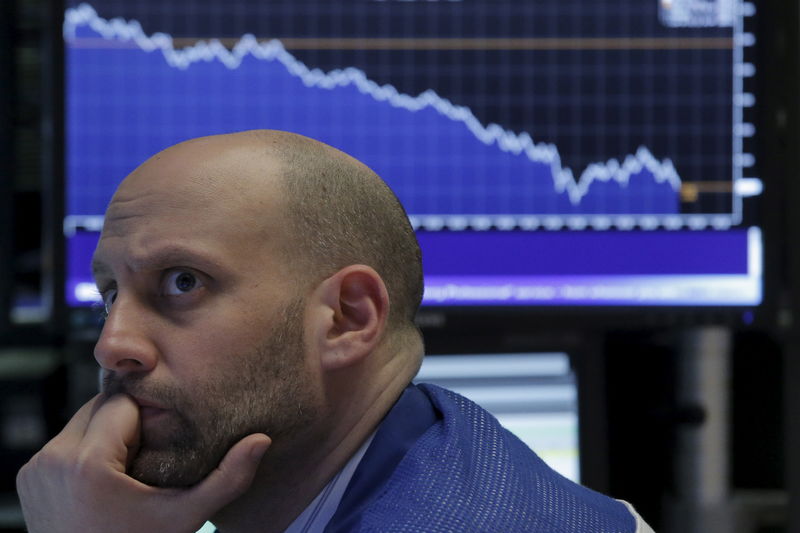© Reuters. Former crypto hedge fund Alameda Research CEO Caroline Ellison arrives for the trial of former FTX Chief Executive Sam Bankman-Fried who is facing fraud charges over the collapse of the bankrupt cryptocurrency exchange, at Federal Court in New York City,
By Jody Godoy and Luc Cohen
NEW YORK (Reuters) -Jurors at Sam Bankman-Fried’s trial heard a recording on Thursday of Caroline Ellison telling employees of his Alameda Research hedge fund that Bankman-Fried had approved using money that belonged to customers of his FTX cryptocurrency exchange to pay off the fund’s loans.
“With crypto being down … most of Alameda’s loans got called,” Ellison, Alameda’s former chief executive, was heard saying in the recording of the Alameda “all hands” meeting on Nov. 9, 2022. “And in order to meet those loan recalls, we ended up borrowing a bunch of funds on FTX.”
When an employee is heard pressing her in the recording on who specifically authorized the use of customer funds, she replied, “Sam … I guess.”
Prosecutors played the audio clips while questioning Christian Drappi, a former Alameda trader, about the meeting. Earlier on Thursday, Ellison, who was also Bankman-Fried’s former girlfriend and confidant, finished testifying on the seventh day of the ex-mogul’s trial about her role in a multibillion-dollar fraud prosecutors say was orchestrated by Bankman-Fried at FTX and Alameda. Both companies are now bankrupt.
Prosecutors say Bankman-Fried, 31, plundered billions in FTX customer funds to prop up Alameda, buy real estate and donate more than $100 million to U.S. political campaigns.
Bankman-Fried has pleaded not guilty to two counts of fraud and five counts of conspiracy, and has said that while he made mistakes running FTX, he never intended to steal funds.
Ellison, a 28-year-old Stanford University graduate who took the reins at Alameda in 2021, is one of three former members of Bankman-Fried’s inner circle who have pleaded guilty to fraud charges and agreed to cooperate with the Manhattan U.S. Attorney’s office.
Over three days on the stand, Ellison testified that the hedge fund took $10 billion in FTX customer funds to repay its debts and make investments.
During cross-examination earlier on Thursday, defense lawyer Mark Cohen asked her whether she learned before or after the “all hands” meeting whether there was an investigation into FTX. She said she did not recall learning about the probe before the meeting.
That could undermine a defense argument that she tailored her testimony to implicate her boss and eventually win leniency for herself.
In follow-up questioning, prosecutor Danielle Sassoon asked Ellison why she said the decision was “Sam’s, I guess.”
“The words ‘I guess’ were a vocal tic,” Ellison said, adding she was feeling uncomfortable at the time. “I hadn’t gone into the meeting intending to cast blame on anyone, but I wanted to be honest and open in answering my employees’ questions.”
ELLISON SAYS SHE DEFERRED TO BANKMAN-FRIED
During the cross-examination, which lasted just four hours, Cohen sought to show that Ellison ran Alameda, albeit with less appetite for risk than Bankman-Fried.
On Thursday, Ellison testified that she became more ambitious after joining Alameda and oversaw many aspects of the firm’s operations, but that she ultimately deferred to Bankman-Fried’s judgment.
Jurors also saw a memo in which Ellison analyzed weaknesses at Alameda, including her assessment that she and her former co-chief executive, Sam Trabucco, did not push employees hard enough.
“Trabucco and I weren’t as good managers or leaders as we could be,” she said on the stand.
Ellison said through tears on Wednesday that she lived in “dread” the truth would come out, and that FTX’s ultimate collapse last year brought an “overwhelming feeling of relief.”
Earlier in the trial, Gary Wang, FTX’s former technology chief, testified that Bankman-Fried falsely tweeted that FTX was “fine” in November as the exchange faced surging demand for withdrawals. A third cooperating witness, former FTX engineering chief Nishad Singh, is also expected to testify at the trial, which could last up to six weeks.
Read the full article here
